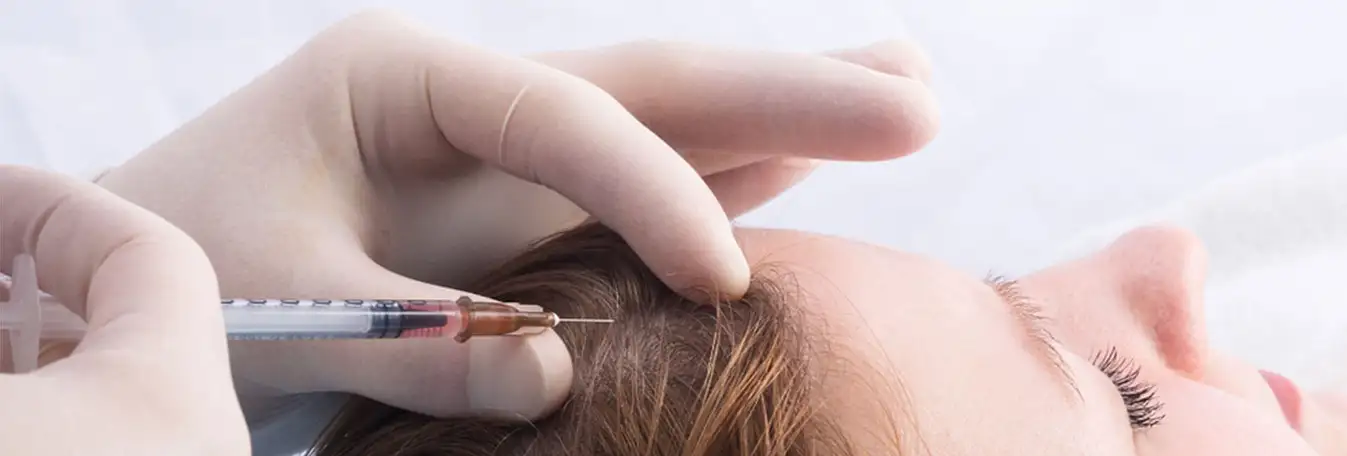Hair peptide therapy involves the use of peptides, which are short chains of amino acids, to address various aspects of hair health. Peptides play a role in signaling pathways and can influence cellular functions, making them a subject of interest in the field of hair restoration and hair care. Hair peptide therapy aims to promote hair growth, improve hair quality, and address conditions like hair loss.
Key Points about Hair Peptide Therapy:
-
Peptides and Hair Growth:
- Peptides used in hair therapy are often designed to stimulate hair follicles, increase blood circulation to the scalp, and promote the growth of stronger and healthier hair. They may work by influencing factors involved in the hair growth cycle.
-
Mechanism of Action:
- The specific mechanism of action can vary depending on the type of peptides used. Some peptides may stimulate collagen production, improve blood flow, or target specific growth factors involved in hair follicle function.
-
Types of Peptides:
- Several types of peptides may be used in hair peptide therapy, including:
- Copper Peptides: Believed to promote collagen production and improve hair follicle health.
- GHK-Cu (Gly-His-Lys Copper Peptide): Known for its potential anti-aging effects on the skin and hair.
- Biotinoyl Tripeptide-1: May stimulate hair growth and improve hair strength.
- Acetyl Tetrapeptide-3: Explored for its potential in reducing hair loss and promoting thicker hair.
- Several types of peptides may be used in hair peptide therapy, including:
-
Topical Products:
- Hair peptide therapy is often delivered through topical products, such as serums, shampoos, or lotions, that can be applied directly to the scalp. These products are designed for at-home use.
-
Hair Loss Conditions:
- Hair peptide therapy may be considered for various hair loss conditions, including androgenetic alopecia (pattern baldness), telogen effluvium, and other forms of non-scarring alopecia.
-
Combination with Other Treatments:
- Some individuals use hair peptide therapy in combination with other treatments for hair loss, such as minoxidil or finasteride, for a more comprehensive approach.
-
Consultation with Professionals:
- Before starting any hair peptide therapy, individuals are advised to consult with dermatologists or healthcare professionals specializing in hair care. A professional assessment can help determine the underlying causes of hair issues and guide the selection of appropriate treatments.
Considerations:
-
Scientific Research:
- While there is ongoing research on peptides and their potential benefits for hair, it's important to note that scientific evidence may vary for different types of peptides. The efficacy and safety of specific peptides should be supported by well-designed studies.
-
Individual Response:
- Individual responses to hair peptide therapy can vary, and results may not be uniform among users. Factors such as genetics, overall health, and the specific cause of hair loss can influence outcomes.
-
Consistency in Use:
- Consistency in using hair peptide products is important for potential benefits. Regular and long-term use may be necessary to see noticeable results.
-
Monitoring Progress:
- Individuals using hair peptide therapy should monitor their progress and, if necessary, consult with healthcare professionals to reassess their treatment plan.
-
Side Effects:
- Topical products containing peptides are generally well-tolerated, but individuals should be aware of potential allergic reactions or irritation. It's advisable to perform a patch test before widespread application.
As with any hair treatment, it's important for individuals to approach hair peptide therapy with realistic expectations and to seek guidance from qualified healthcare professionals. Professional advice can help tailor a treatment plan to individual needs and address any underlying factors contributing to hair concerns.



